VMAN 50 Cover Star: KJ Apa
After finishing the last season of his hit show and becoming one of the faces of Lacoste, the actor, and musician is ready for change

This cover story appears in VMAN50, now available to order
This March, it’s time to say goodbye once more to Archibald “Archie” Andrews, the titular character from the 82-year-old seminal comic book franchise about love, friendship, music, and quotidian life in the American suburbs. We say “again” because in 2014, the character already died by bullet in the off shoot comic series Life with Archie. Now, Riverdale—the CW TV show starring New Zealand actor and singer KJ Apa as the beloved, maroon-haired protagonist in a twisted drama-mystery—is reaching its seventh and final season, meaning Archie will once again disappear out of the cultural zeitgeist, even if just temporarily. Apa himself, however, isn’t going anywhere. Life for the 25-year-old performer is, in many ways, better than ever, with a child, sobriety, and a conviction to prove himself as an artist. We asked VMAN family member and guest editor James Franco to connect with Apa about being a workaholic, the spirituality of sobriety, and the importance of connectivity in life.
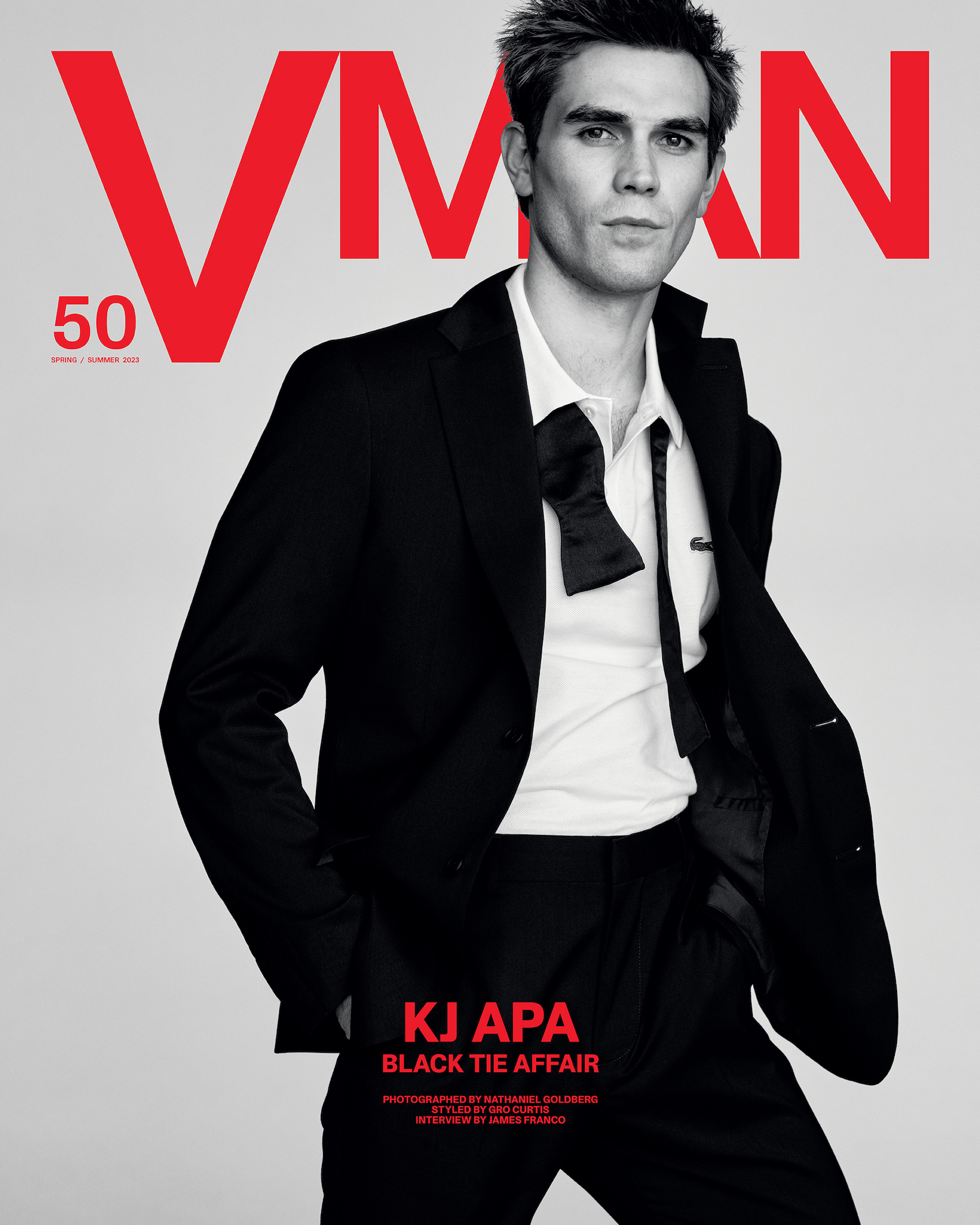
JAMES FRANCO: So how did you get into Riverdale and acting?
KJ APA: So I grew up in New Zealand in Waitakere out west of Auckland. And acting was never even something that struck any sort of chord with me. As a kid I loved movies. I used to watch Jim Carrey. My dad loved Jim Carrey. And we shared this kind of fascination with what he was capable of in front of a camera.
JF: What are your top three Jim Carrey movies?
KA: Cable Guy, Ace Ventura, and Dumb and Dumber.
JF: Dumb and Dumber was probably one of my top three movie experiences. I was in high school. It was partly because—I don’t smoke anymore, people think I’m a big stoner still—but in high school I was. That was probably the highest I’d ever been seeing a movie. I almost couldn’t walk out of that theater after.
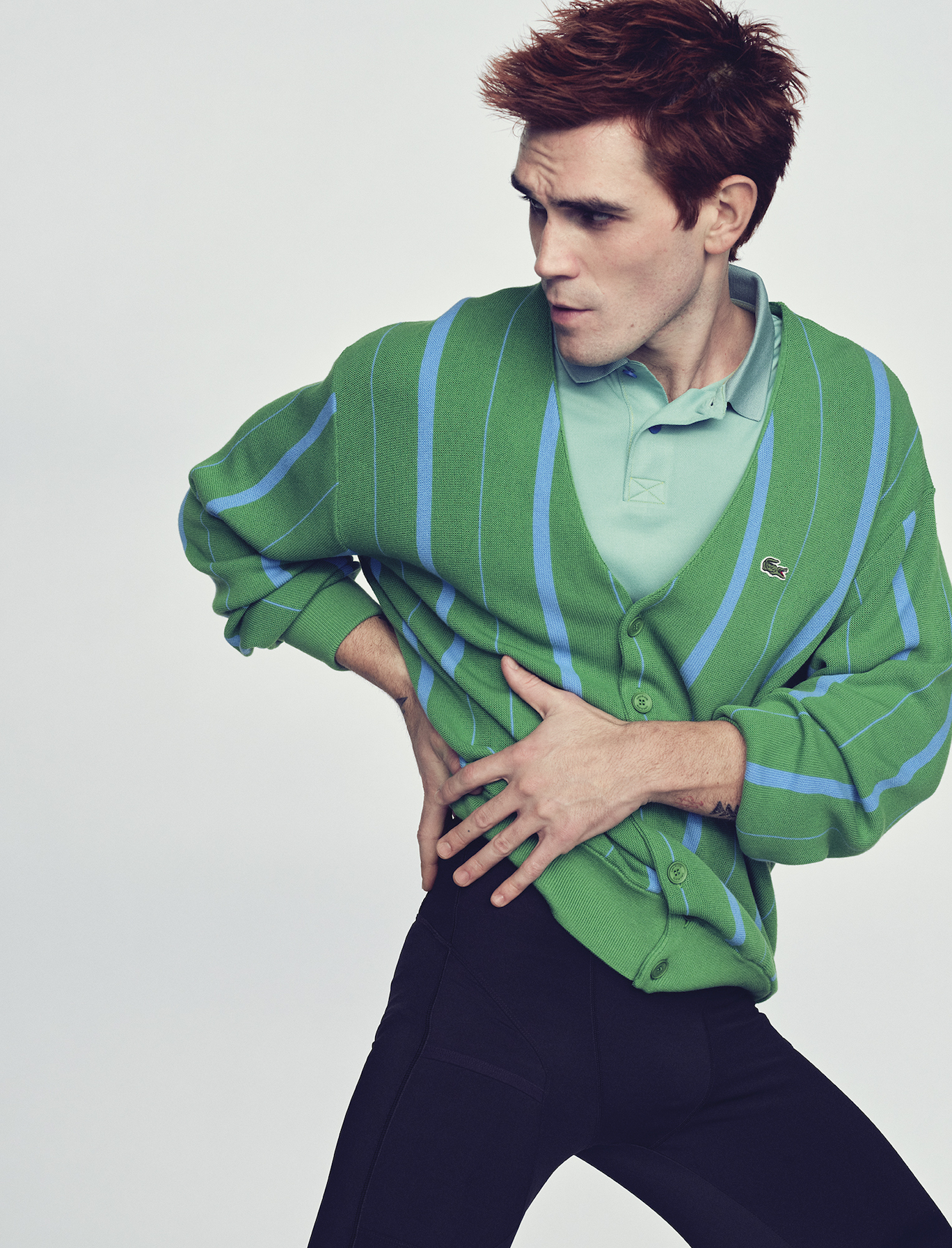
KA: I was like 12, so I definitely wasn’t smoking weed. But I just remember watching Jim Carrey and even still now, nobody does it like him. When I see actors like you, like Jim Carrey, playing characters like that, I want an opportunity to do that so badly. I feel like after being on Riverdale, like a CW type of show, it’s really difficult to get those opportunities because people only see you as this actor who’s capable of doing one thing…I almost want to go to the opposite side of the spectrum of CW Land. I want to play real characters, you know?
JF: That makes me think of a couple of things. I didn’t realize how good Freaks and Geeks was when we were doing it because it was one of my very first jobs. Looking back it’s like, oh my god; Judd Apatow, Mike White was a writer, you know, incredible cast. But at the time, I was such an idiot. I was like, “Oh, I’m stuck on a TV show. Ugh.” Then it ended and I was like, “Oh, now what do I do?” But then I played James Dean and it started this new phase of my career. But then I did a series of movies that I just didn’t like and I got really depressed mainly because acting was the only thing I had in my life to define me. And then I reunited with Judd Apatow…he gave me a little cameo in Knocked Up to sort of prove that I could be funny. And then we got Pineapple Express and it changed my entire career. Which is all to say, there might be some people just around you right now who are thinking the same way you are thinking.
KA: Mhm, definitely.
JF: But I wanted to ask, when you look back on the show, what do you think some of your takeaways will be?
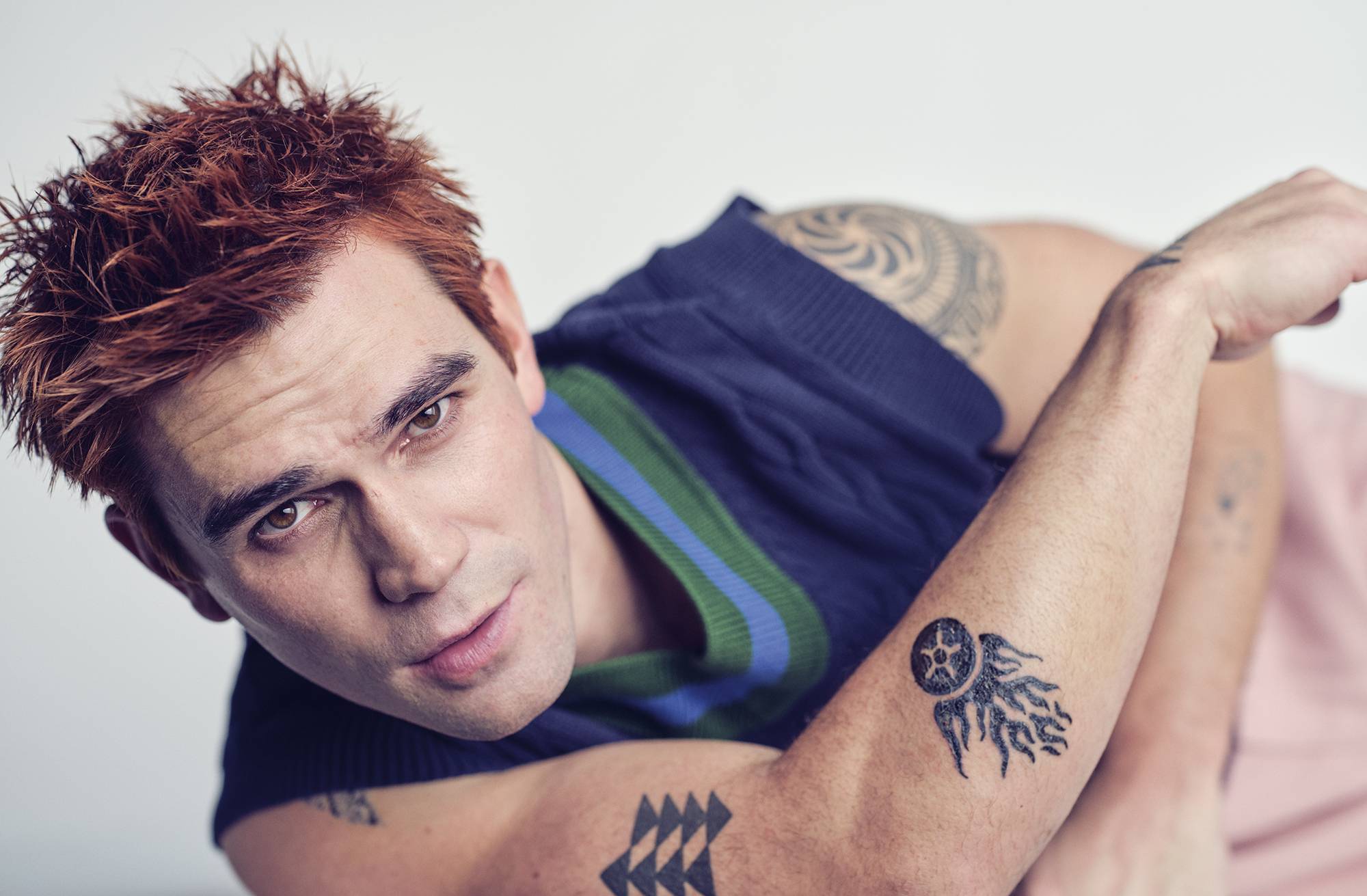
KA: It’s so hectic to think about because…I’ve spent a lot of time really unhappy. Really unhappy about where I was in my career, which objectively, seems really ungrateful. And then I realized, coming into my last season of the show, how incredible of an experience I’ve had. When I’m older, I get to have this documentation of these pivotal years of my life that are documented on television. The seasons represent chapters of my private life that I can look back on and show my kid and reminisce on. I’ve been through so much, man. As you know, a few years ago, I found recovery and my sobriety because at one of my lowest points, someone who I’ve worked with gave me your number, and it took me weeks to reach out. Because I was like, “Why would this guy want to help me?” Like, why would this guy want to help this CW actor from New Zealand who he doesn’t even know? I had your number for a while. I got to the point where I couldn’t really hack it on my own. And so I reached out to you, and you gave me another way to live my life through recovery, man. And that program and the program that I’m still trying to get has helped me tremendously. How to love myself, how to be a father, how to show up for myself, how to be a professional at work. And most importantly, how to re-establish my relationship with my God. Because I grew up in a pretty religious house in terms of being brought up Christian, and I still consider myself a Christian, but through this program, I’ve now understood that my direct link to God is through my self-expression, my creative self-expression.
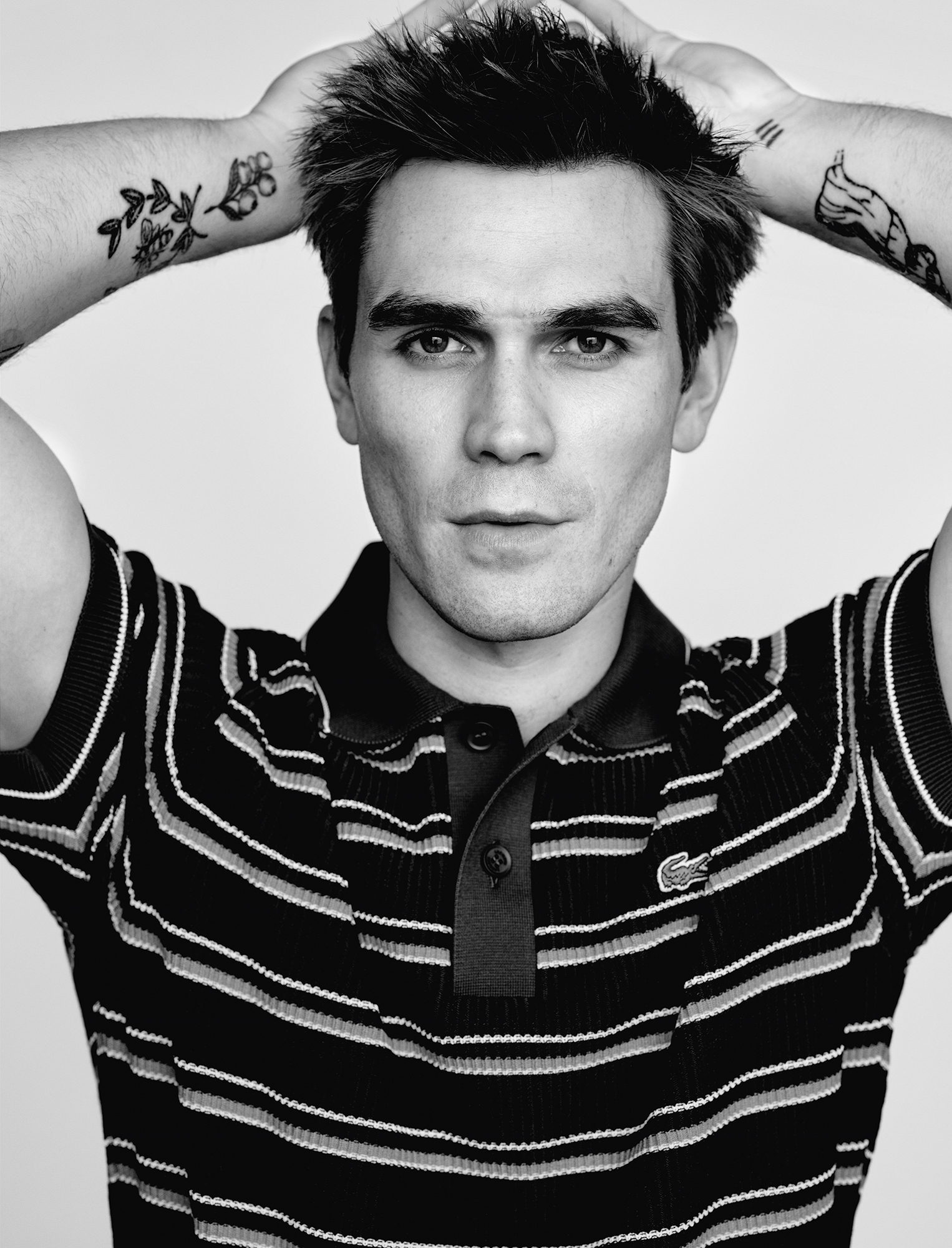
JF: Well, what I’ll say is, I was definitely a workaholic, you know? I’m just speaking for myself, but you know, after a while it was kind of diminishing returns because I was working to the detriment of my life. And here’s my, you know, douche card. I got to have lunch with Bruce Springsteen one time, maybe five years ago. He said a couple of things to me that were so important because he was a bit of a workaholic as well…and at a certain point in his life, Springsteen realized, right after Born in the U.S.A.—number one album, still one of the best-selling albums ever, right—he realized he was so lonely, he was so alone. It’s in his book, that he went to this country fair in like, Kentucky or something, and he saw these families and these couples and he realized that he had none of that in his life. And that’s when he got into therapy. And so at lunch he said to me, “You can’t live in the work, but the work can live in you.” And I think it’s kind of like what Bryan Cranston said in his book: “I want to be sane in my life so I can be crazy in my work.” And the other thing that Springsteen said was, one of the scary things about success is that when you get successful, especially if you’re a creative person, the mind wants to think that everything about you contributed to the success. Even the defects. Like if you’re a rockstar, you’re like, “Yeah, all the crazy stuff I’m doing is going into my music.” But it’s like, no, you’re a great musician. Cobain was a great musician because he played every day in his basement as a teenager and practice, practice, practiced. Not because he was high all the time. He was great despite that.
One of the things I’ve tried to do with my work, because it used to be all, that’s my identity, I gotta do all this stuff , I gotta be great, it was like, take, take, take. And now what I’ve tried to do in my life is change the taking and just adding to what I can. How can I be of service? And I had been sober for a long time. I’ve been sober since I was 17 and I thought I was living a spiritual life because I was sober, but I wasn’t living a sober life in these other areas, work included. So now that I’m trying to get away from that work addiction, I’ve really tried to learn how to bring the spiritual side of things into my work and look at work as a form of service. And I found that when you do too much, it works for a while, you work really, really hard, but for me it was unsustainable. It stopped working after a while.
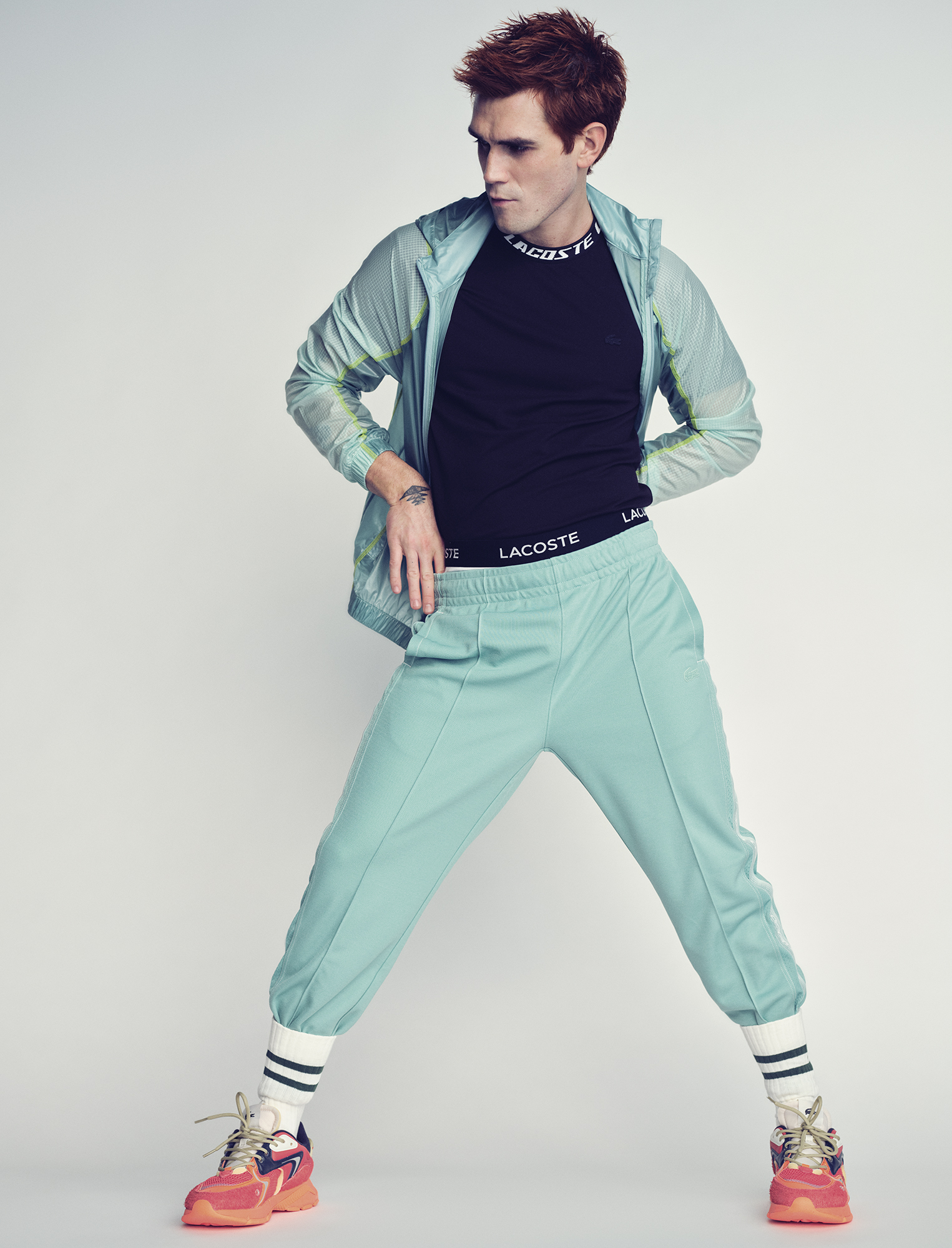
KA: Yeah. I recognize that coming out of Riverdale, the fear of maybe not working, I realized that taking some time is actually a blessing. I’ve got debt and I know I need to keep making money and stuff like that to support my family. But I relate so much to what you’re saying, this obsession with working…I’ve been really guilty over the years of measuring my success against my work, but now, especially being in recovery, I’m trying to set standards for myself. I’m kind of going into another territory right now, being a father has really brought up a lot of things. Like I feel like I’m going through this period of self-discovery right now in my life where I’m like, “Okay, I’m a father. I’ve got all this responsibility,” but I have all this ambition and things that I want to achieve. I’m trying to find a healthy balance for it all.
JF: You know, what’s so special about this conversation is that I get to talk to like, a version of my younger self and it’s really powerful. Like when you reached out, it was so special for me, because when I got sober, I was in Palo Alto and there weren’t a lot of young people around and certainly nobody in the movie business. And then when I got to L.A. and there were probably people around who could have given me some guidance, I just wasn’t ready for it, you know? And so when you reached out it was so sweet, because it was like, here’s a chance to talk to that young James and just tell him, you don’t have to do it alone. ‘Cause I did think I was an outsider. And so it’s been so great, buddy. I love talking to you. It was really special.
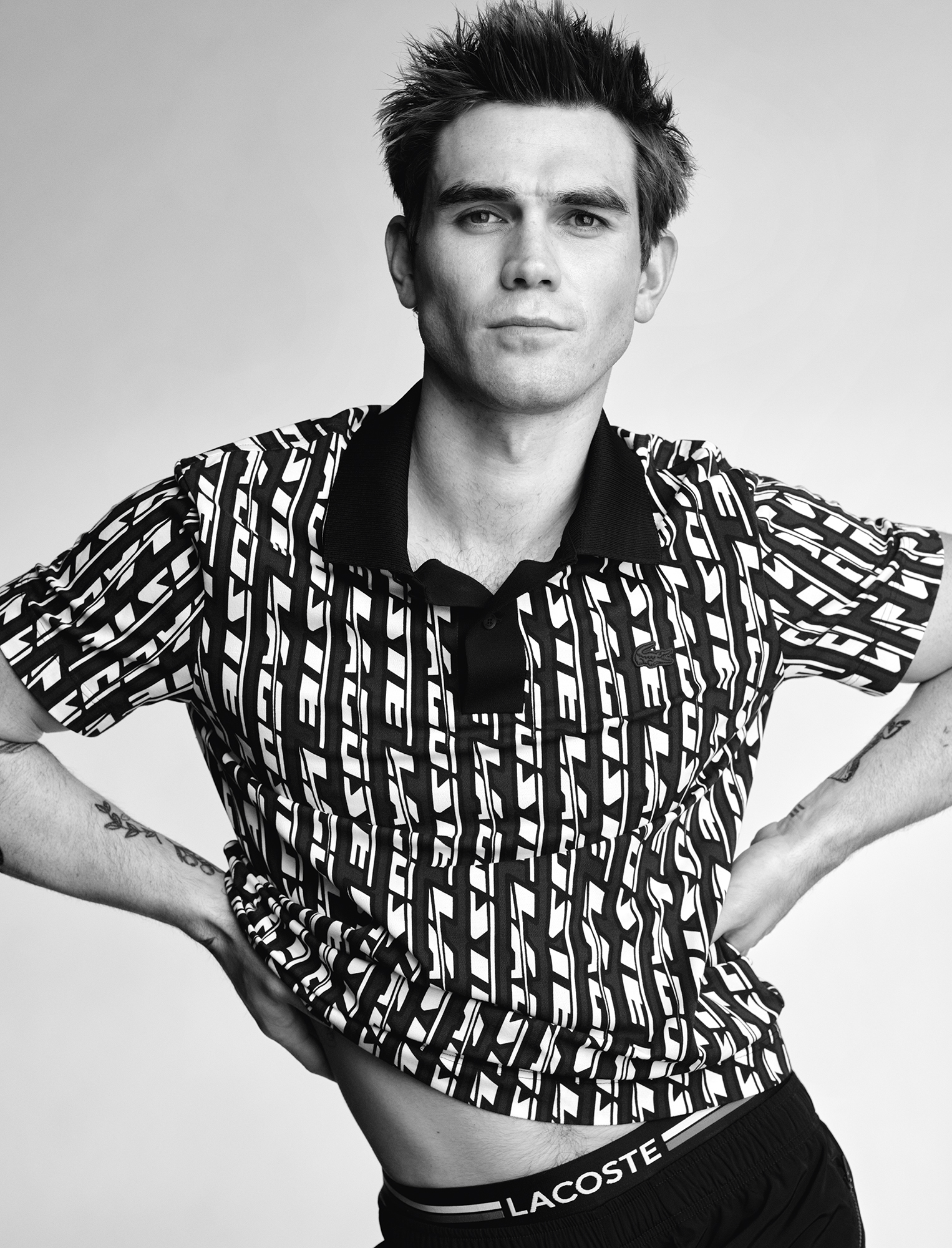
KA: I appreciate you doing this. I was actually really nervous before this because, for some reason, you just, you scare the shit out of me I don’t know dude. You just have powerful energy.
JF: Nah, I love you buddy.
This cover story appears in VMAN50, now available to order
Discover More
